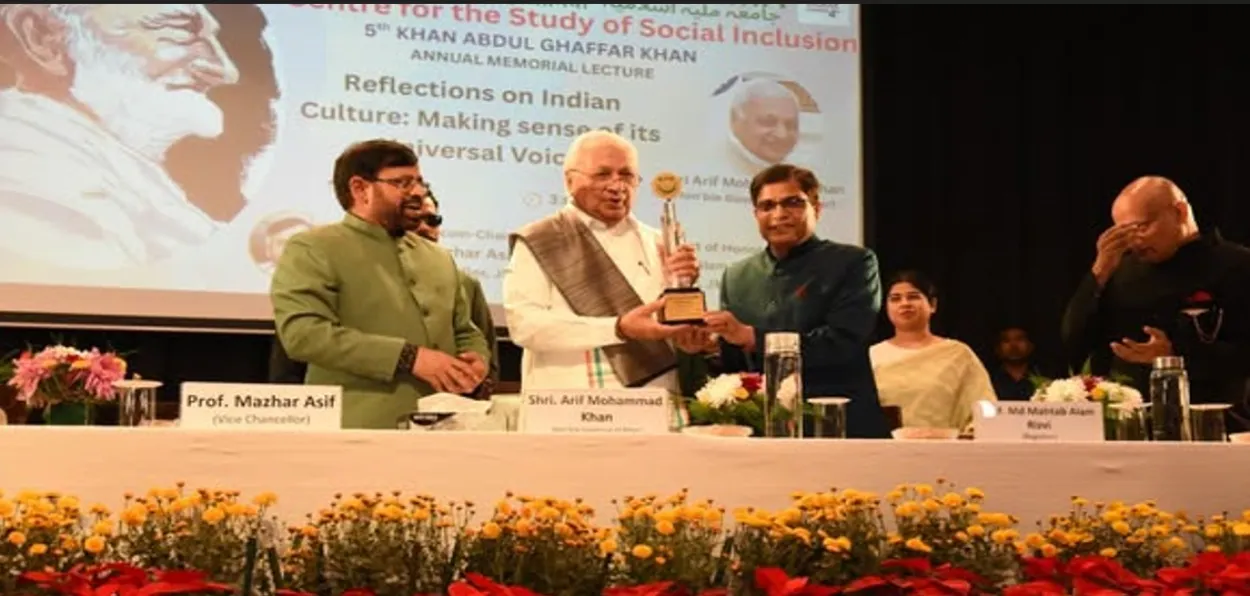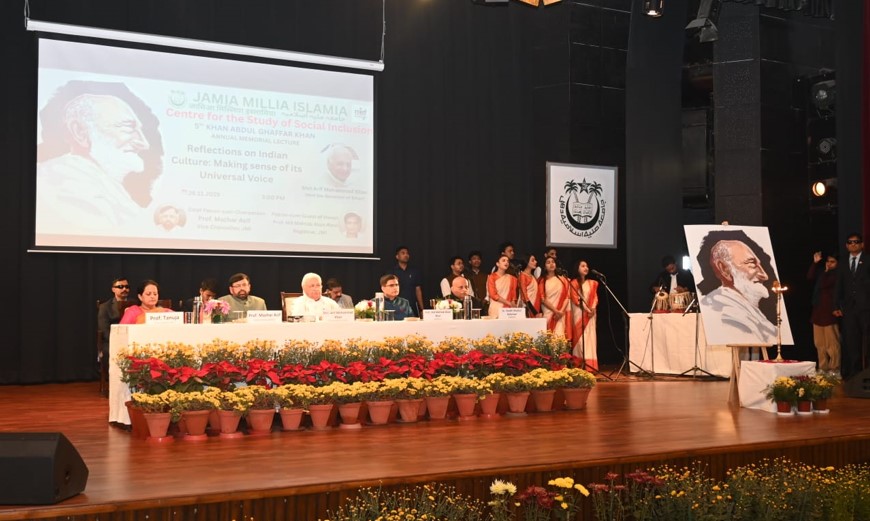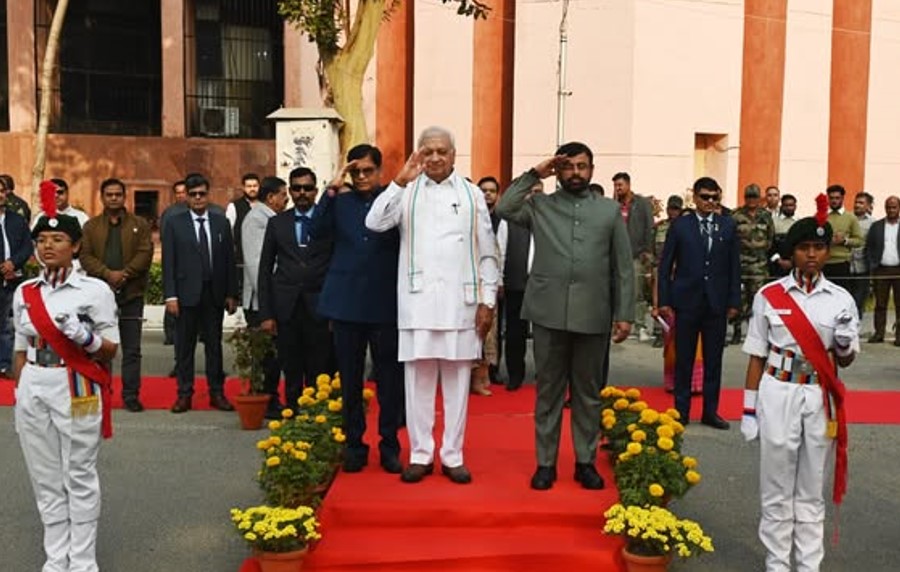
New Delhi
Delivering the fifth Khan Abdul Gaffar Khan lecture in Jamia Milia Islamia, Bihar Governor Arif Mohammad Khan said that the Indian culture imparts a "humanistic divinity to all humans that flows from a sense of oneness.”
“From Adi Shankaracharya to Swami Vivekananda, Indian thinkers presented to the world the universal vision of the Vedanta and Upanishads, in which human beings are neither divided by caste nor religion, nor defined by any external identity; rather, every individual is considered a carrier of the divine."
He delivered a comprehensive and inspiring address on the topic "Reflections on Indian Culture: Making Sense of Its Universal Voice" at the fifth Khan Abdul Ghaffar Khan Annual Memorial Lecture held at the Jamia Millia Islamia (JMI).
A large number of university faculty, officials, and students, including Vice Chancellor Prof. Mazhar Asif, Registrar Prof. Mohammad Mahtab Alam Rizvi, Acting Director and Dean of the Academic Centre for the Study of Social Inclusion (CSSI), Prof. Tanuja, and Convener Dr Mujibur Rahman, attended the lecture.

This annual lecture, organised by CSSI, is dedicated to the memory of Bharat Ratna Khan Abdul Ghaffar Khan—a great hero of India's freedom struggle—who made the message of non-violence, unity and humanity the foundation of his life.
This lecture series, initiated in 2017, distinguishes Jamia Millia Islamia as a unique effort to preserve and disseminate, on an academic platform, the contribution of this great Pashtun leader, known as the 'Frontier Gandhi', to India's freedom journey.
The program began with a grand welcome and an impressive guard of honour by NCC cadets upon the Governor's arrival at the university. After reciting the Quran and singing the Jamia Tarana, the anthem of the University, Khanrnor lit a lamp before the portrait of Ghaffar Khan and paid homage to the values of non-violence, courage, and human welfare.
He said that Ghaffar Khan "transformed the tribal Pashtuns to walk the path of peace," and that it was because of this extraordinary moral strength.
In his thought-provoking lecture, Arif Mohammad Khan highlighted the uniqueness of Indian culture by referring to Indian, Persian, Greek and Arabic philosophical traditions.
He said that from Adi Shankaracharya to Swami Vivekananda, Indian thinkers presented to the world the universal vision of the Vedanta and Upanishads.
Governor Khan said that among the five major civilisations of the world, Indian civilisation is considered supreme because its fundamental inspiration is the spread of knowledge, coexistence, and wisdom.

Quoting Allama Iqbal's famous couplet—"Mir-e-Arab ko aayi... thandi hawa jahan se"—he said that it identifies India as the land from where the cool breeze of knowledge and wisdom spreads throughout the world.
Citing Vivekananda's universal message, he said India's spiritual, humane, and practical approach offers the most effective way to alleviate global conflicts and suffering. "The world recognised human dignity in 1948, but India has been preaching the divinity of man for centuries," he said.
Registrar Prof. Rizvi, discussing Ghaffar Khan's inclusive nationalism and the Khudai Khidmatgar movement, said that his life bears testimony to the fact that true nationalism is based on nonviolence, compassion, justice, and the protection of human dignity. His deep sorrow over the Partition of India underscores the fact that he championed the common freedom of all of South Asia.
Vice Chancellor Professor Mazhar Asif said that Jamia Millia Islamia not only embodies academic excellence but also embodies the ideals of empathy, civility, skill-based education, and service to the nation.
He underscored Indian civilisation's tradition of diversity, pluralism, and dialogue, saying these values are most evident in the life and thoughts of Ghaffar Khan.
ALSO READ: Rahmat Tarikere: The weaver of Karnataka’s pluralistic tapestry
Eminent scholars Rajmohan Gandhi, Amitabh Kant, Prof. Zoya Hasan and Prof. Shruti Kapila have delivered the Khan Abdul Gaffar Khan Memorial lecture earlier.
